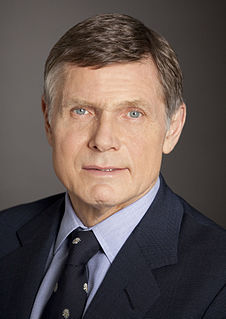Dispute resolution or dispute settlement is the process of resolving disputes between parties. The term dispute resolution is sometimes used interchangeably with conflict resolution, although conflicts are generally more deep-rooted and lengthy than disputes. Dispute resolution techniques assist the resolution of antagonisms between parties that can include citizens, corporations, and governments.
The American Arbitration Association (AAA) is a not-for-profit organization in the field of alternative dispute resolution, providing services to individuals and organizations who wish to resolve conflicts out of court, and one of several arbitration organizations that administers arbitration proceedings. The AAA also administers mediation through www.AAAMediation.org and other forms of alternative dispute resolution. It is headquartered in New York City, with regional offices in Atlanta, Boston, Charlotte, Chicago, Dallas, Denver, Detroit, East Providence, Rhode Island, Fresno, Houston, Los Angeles, Miami, Minneapolis, New York City, Philadelphia, Phoenix, San Antonio, San Diego, San Francisco, Seattle, Somerset, New Jersey and Washington, DC.
Online dispute resolution (ODR) is a branch of dispute resolution which uses technology to facilitate the resolution of disputes between parties. It primarily involves negotiation, mediation or arbitration, or a combination of all three. In this respect it is often seen as being the online equivalent of alternative dispute resolution (ADR). However, ODR can also augment these traditional means of resolving disputes by applying innovative techniques and online technologies to the process.
The Australian Industrial Relations Commission (AIRC), known from 1956 to 1973 as the Commonwealth Conciliation and Arbitration Commission and from 1973 to 1988 as the Australian Conciliation and Arbitration Commission, was a tribunal with powers under the Workplace Relations Act 1996 that existed from 1956 until 2010. It was the central institution of Australian labour law. The AIRC replaced a previous system of industrial courts, which broadly speaking, was engaged in the same functions, but with superior independence and powers.

The United Nations Commission on International Trade Law (UNCITRAL) is a subsidiary body of the U.N. General Assembly (UNGA) responsible for helping to facilitate international trade and investment.
The International Centre for Settlement of Investment Disputes (ICSID) is an international arbitration institution established in 1966 for legal dispute resolution and conciliation between international investors and States. ICSID is part of and funded by the World Bank Group, headquartered in Washington, D.C., in the United States. It is an autonomous, multilateral specialized institution to encourage international flow of investment and mitigate non-commercial risks by a treaty drafted by the International Bank for Reconstruction and Development's executive directors and signed by member countries. As of May 2016, 153 contracting member states agreed to enforce and uphold arbitral awards in accordance with the ICSID Convention.

A forum selection clause in a contract with a conflict of laws element allows the parties to agree that any disputes relating to that contract will be resolved in a specific forum. They usually operate in conjunction with a choice of law clause which determines the proper law of the relevant contract.

The Advisory, Conciliation and Arbitration Service (Acas) is a Crown non-departmental public body of the Government of the United Kingdom. Its purpose is to improve organisations and working life through the promotion and facilitation of strong industrial relations practice.
International arbitration is arbitration between companies or individuals in different states, usually by including a provision for future disputes in a contract.
FICA is the Federal Insurance Contributions Act tax.

Arbitration, a form of alternative dispute resolution (ADR), is a way to resolve disputes outside the judiciary courts. The dispute will be decided by one or more persons, which renders the 'arbitration award'. An arbitration decision or award is legally binding on both sides and enforceable in the courts, unless all parties stipulate that the arbitration process and decision are non-binding.
The UNCITRAL Model Law on International Commercial Arbitration is a model law prepared by UNCITRAL, and adopted by the United Nations Commission on International Trade Law on 21 June 1985. In 2006, it was amended and now includes more detailed provisions on interim measures.
The Court of Arbitration was the first court in New South Wales, a state of Australia which dealt exclusively with industrial relation disputes in the early twentieth century. Justice Lance Wright claims that it perhaps was the first court of its type in the world. The court was unique at that time as it was the first court of its type to deal with labour relations between employer and employees on a compulsory basis. Previous arbitration measures between employer and employee had been on a voluntary basis or had been based on the criminal justice system through the use of criminal penalties. The conventional economic model is that both employer and employee enjoy equal bargaining power to set wages and conditions. This asserts that both parties are able to agree on a fair market price for the cost of labour free from distortions. However, where employers or employees group together, these outcomes can be distorted particularly in “boom” or “bust” economic conditions. The purpose of the court was to change the manner in which employers and employees negotiated pay and conditions. It was an attempt to reduce the power imbalances between employer groups or employee unions that arose from using collective bargaining, and the resulting use of that market power to influence wages, and also to reduce the threat of lockout or strikes to achieve those ends.
International Commercial Law is a body of legal rules, conventions, treaties, domestic legislation and commercial customs or usages, that governs international commercial or business transactions. A transaction will qualify to be international if elements of more than one country are involved.

The Commonwealth Conciliation and Arbitration Act 1904 was a law passed by the Parliament of Australia and received assent on 15 December 1904. The Act sought to introduced the rule of law in industrial relations in Australia and, besides other things, established the Commonwealth Court of Conciliation and Arbitration.
Alternative dispute resolution (ADR), or external dispute resolution (EDR), typically denotes a wide range of dispute resolution processes and techniques that parties can use to settle disputes, with the help of a third party. They are used for disagreeing parties who cannot come to an agreement short of litigation. However, ADR is also increasingly being adopted as a tool to help settle disputes alongside the court system itself.

Justice Jean-Paul Beraudo is a lawyer, academic and author of legal works. He was Justice at the French Supreme Court and Vice-Chairman of the International Court of Arbitration. He lectures on International Private Law and International Trade Law at Panthéon-Sorbonne University and on Company law at Sciences-Po, Paris. The International Institute for the Unification of Private Law (UNIDROIT) appointed him correspondent for France and a member of the scientific committee.

William W. Park is Professor of Law at Boston University School of Law. His practice and teaching focus on international financial and commercial transactions. He has served as Arbitrator on the Claims Resolution Tribunal for Dormant Accounts in Switzerland and the Appeals Tribunal of the International Commission on Holocaust Era Insurance Claims, and currently sits on the North American Free Trade Agreement (NAFTA) Chapter 14 Financial Services Roster.

Shavit Matias is an Israeli international law and globalization expert who was the first Deputy Attorney General of Israel for International Law. She is a Research Fellow at the Hoover Institution Stanford University and a member of Hoover's Task Force on National Security and Law. She also heads the Program on Diplomacy and Conflict Resolution at the Interdisciplinary Center Herzliya (IDC), and is in the Executive Leadership of the Institute for Policy and Strategy (IDC).
The 'Arbitration and Conciliation Act 1996' is an Act that regulates domestic arbitration in India. It was amended in 2015 and 2019.